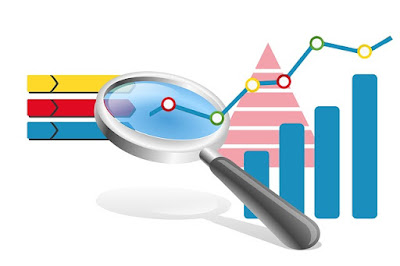Right before the world changed, I started a research project investigating child development knowledge among new children's librarians in U.S. public libraries. Suddenly faced with an extended library closure and administrative leave, I made good use of the unexpected time off to power through my analysis of the results, write a draft of the paper, and record a presentation of the project.
I became interested in this topic after I started working in public library youth services and I realized how much my prior education (which included child development and education coursework), experience with working with children, and being a parent helped me in relating both to children and their caregivers, having developmentally appropriate expectations of behavior, and planning developmentally appropriate programs. I also noticed that some who did not have the benefit of similar education and experience sometimes struggled a little in these areas, through no fault of their own.
I realized once I started on my MLIS that even a degree from an ALA-accredited program with a youth services track may not provide any significant education in child development (my program spent all of one week out of the entire program on child development). I strongly feel that having a knowledge of child development is important for anyone working with children, and though the literature consistently supports that having a knowledge of child development and being able to apply it to library services is a competency that children's librarians should have, it is unclear when and how they are supposed to get this knowledge or if in fact this competency is being met. I am hoping to publish or present my findings, so I'm not going to give all the details here, but I wanted to give a brief partial summary for those who participated (and thank you to those who did!) or expressed interest.
It will probably come as no surprise to most of those actually working in youth services, but my research confirmed that having a knowledge of child development is relevant and beneficial to essentially every aspect of children's librarianship. I also found that while new children's librarians have some knowledge of child development, particularly in the area of early literacy skills, it is primarily from prior practical experience and many lack a strong academic foundation, which results in knowledge gaps, a lack of depth or breadth, and/or being unfamiliar with the terminology. Most respondents did not find their undergraduate or MLIS coursework to be very helpful in enhancing their child development knowledge, and all felt they would benefit from additional education and training in child development.
This means that many newly minted children's librarians are starting the job without a strong foundation in child development and having to play catch-up; learning on the job, through self-education, and through continuing education. It appears that MLIS programs need to evolve and better prepare librarians for the greatly expanded roles they now have that extend well beyond the materials, and focus more on the children and caregivers using them.
Again, I am planning on pursuing publication or conference presentation, so for now that's as much as I can say, but if that doesn't work out I will publish the results in their entirety here at the very least. If you would like to be notified when the study is published or presented, send me an email at AdventuresInStorytime@gmail.com to be added to the contact list. I will be the first to admit it is a small and imperfect study, but I do think it has value and I feel the topic is an important one, so I hope it can find an audience.
*Update: I am thrilled to announce this research has been published, and appears in the Journal of Education for Library and Information Science, Vol. 63, Issue 1, January 2022!
Related posts: "Research Publication" "Child Development Knowledge Survey"

No comments:
Post a Comment